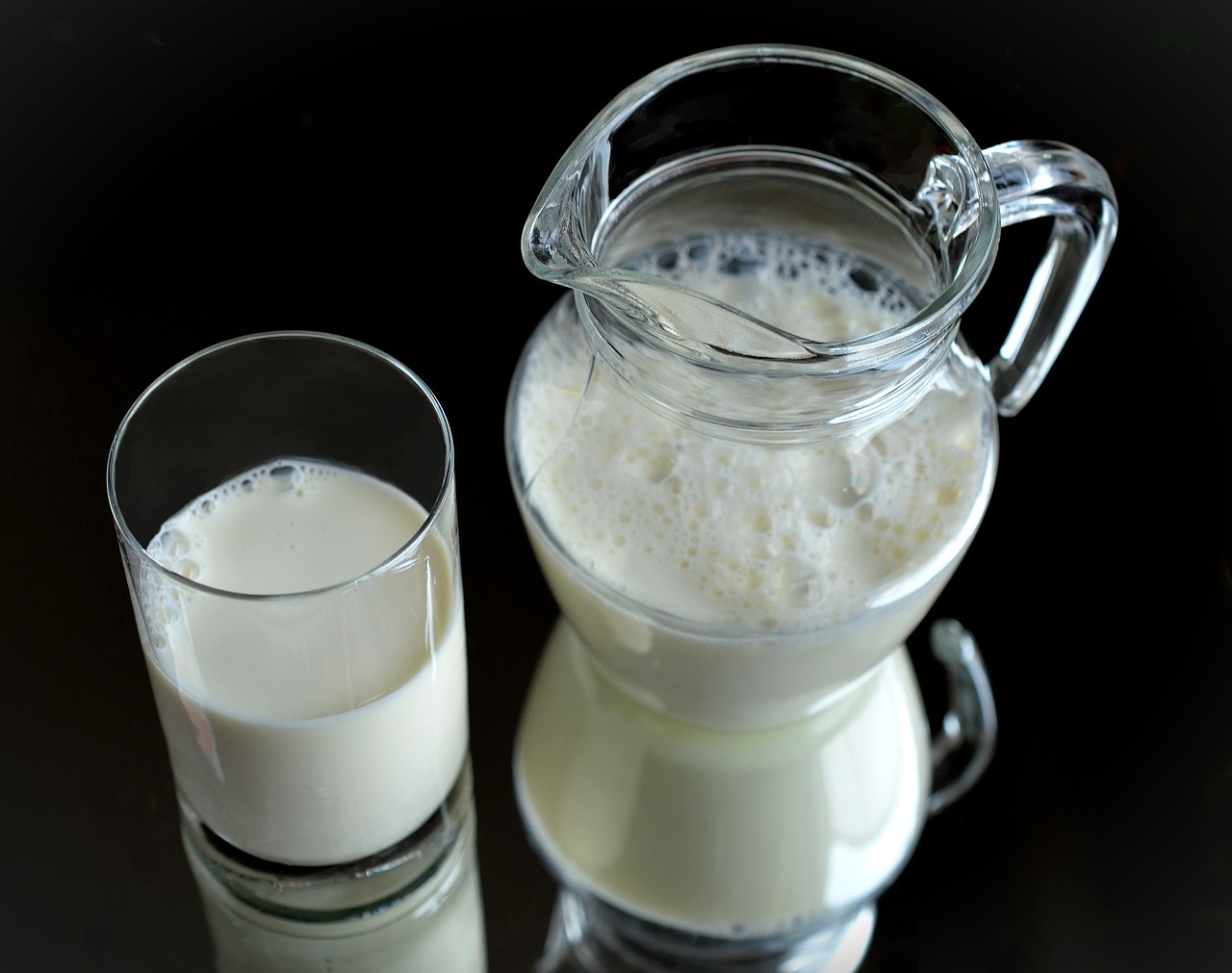This Difference Between is a fairly simple, non-complex one, compared to others we’ve had.
However, if you’re interested in reading more about the milk spectrum, HaveMilk.com has a great list covering flavored milk, organic milk, buttermilk, etc.
Whole milk:
- 3.5% milk fat
- 150 calories per serving
- 12 grams of sugar per serving
- contains fat-soluble Vitamins A, D, E, and K
Skim milk:
- less than 0.5% milk fat
- 80 calories per serving
- 12 grams of sugar per serving
- contains fortified Vitamins A and D
- contains slightly more calcium
The biggest difference between the two is, not surprisingly, the fat content. Whole milk is creamier and more flavorful because of the higher fat content, while some feel that skim milk is “watered down.” (I taste no difference between the two, myself.)
DifferenceBetween.net explains that skim milks gets its name from the skimming process it undergoes in order to remove as much fat as possible. After the milk has been skimmed, the watery part of the milk – which contains the calcium – is increased. However, the vitamins are removed during this process as well. Therefore, the manufacturers add Vitamins A and D which, as FitDay.com says, aren’t “quite as natural but [are] still beneficial.”
Generally speaking, growing children and certain athletes are recommended to consume whole milk, while those trying to diet should try drinking skim milk. What about the rest of us average folks, then?
LeanOnLife.com explores a few different studies between whole milk and skim milk and which one really is better for you. Not only do they recommend whole milk for the average Joe, but even for those trying to lose weight.
One of the studies examined, published in the Annals of Internal Medicine, found that “participants who consumed high-fat dairy products such as whole milk, butter, and cheddar cheese, had about a 60% lower risk of developing adult-onset diabetes than those who opted for skim milk.”
LeanOnLife.com acknowledges that there are certainly studies out there that favor skim milk over whole milk; “however, the benefits of whole milk are nutritionally superior to skim milk.”
So unless you have certain dietary requirements that you’ve perhaps discussed with your doctor or nutritionist, it looks like whole milk is the better way to go.
